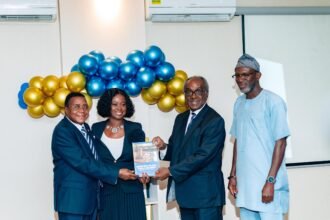
Facts of the case
In Ghana Bar Association v Attorney-General & Anor. (Abban case) (supra), the plaintiff, an association of professional lawyers, challenged the constitutionality of the appointment of the second defendant, Justice I.K. Abban, as Chief Justice by the President under Article 144(1) of the 1992 Constitution. In its reliefs (3) and (4), the plaintiff sought an injunction to restrain the second defendant (the Chief Justice) from acting in that capacity, as well as a declaration that the warrant of appointment was null and void, requesting its cancellation by the Court.
The Attorney-General raised a preliminary objection on whether the Supreme Court was seised with jurisdiction to adjudicate on the issues submitted before it. In the words of Kpegah JSC; “the learned Deputy Attorney-General and his tram quickly erected a “no entry” sign on the ground that the issue is non-justiciable; it being a political question.”
The Attorney-General argued that by virtue of the doctrine of separation of powers enshrined in the Constitution 1992, the appointment of the second defendant as the Chief Justice by the President acting in consultation of the Council state and with the prior approval of Parliament, is a non-justiciable issue; it being a political question. The argument was based on the premise that such appointments are political decisions specifically vested in the President, the Council of State, and Parliament.
In contrast, the reliefs sought by the plaintiff, the Ghana Bar Association, clearly indicated their intent to remove the second defendant through the judicial process. As Kpegah JSC noted: “no sophistry and pretence can hide this intention of the plaintiff in view of reliefs (3) and (4) as quoted above.”
Decision of the Supreme Court:
The Supreme Court in upholding the preliminary objection by the 1st Defendant, the Attorney General held per Bamford Addo JSC:
“As can be seen, the Constitution 1992 itself has provided the grounds and the procedure for the removal or suspension of a person who has been constitutionally appointed Chief Justice. Indeed, it would be a violation of the Constitution 1992 for any court to attempt to do this and clearly this court has no jurisdiction in such a case: see the case of Tuffuor v Attorney-General [1980] GLR 637 CA, sitting as SC, wherein the Supreme Court held as stated in the headnote, in holding (8) that: “Once the Chief Justice was constitutionally in office, his removal, whatever arguments were raised, could only be constitutionally effected by invoking the relevant provisions of article 128 and not by recourse to article 127(1). Any other manner, any other method, would clearly be inconsistent with the provisions of the constitution.”
Kpegah JSC also said as follows:
“My lords, every element is present in the case before us. To the first question, whether the appointment of the Chief Justice is constitutionally committed to other agencies of government, I will answer in the affirmative. By the provisions of article 144(1) of the Constitution 1992 this function is specifically committed to both the executive and the legislature; and to accept the invitation which is being extended to us and exercise jurisdiction in the matter, we shall be behaving like an unruly dog which has refused to be chained to its own kernel but wanders to places where it ought to be.”
Per Hayfron Benjamin JSC:
“This silly case was instituted by the plaintiff, the Ghana Bar Association, who number among its membership most of the finest legal brains in this country. The plaintiff has sought by its writ to inveigle this court into becoming accessory to the demolition of our constitution, 1992. This court is the watchdog of the Constitution, 1992 and it is its duty to ensure that parties appearing before it have a level field to play and play according to the rules, i.e the Constitution 1992, the letter of which the plaintiff is deemed to be expert on. I will also dismiss the plaintiff’s writ of summons”
Per Adjabeng JSC:
“It is important to note that article 146(8) of the Constitution 1992 provides that the proceedings of the committee appointed to deal with any such petition “shall be held in camera.” It is mandatory that such proceedings be held in private, not in public or open court as has unfortunately been done in this case. The reason for this important provision is obvious. It is to preserve, protect and safeguard the authority, dignity and independence of the judiciary. It would be a sad day for this country if this court were to grant the request of the plaintiff-association and start removing our judges in open court contrary to the provisions made in this Constitution 1992 for the purpose.
It is in the light of these observations that I consider this action of the plaintiff-association, who should be expected to know better, most unfortunate as it is likely to undermine the judiciary, in particular, and the rule of law, in general.”
Wiredu JSC (Presiding) dissented as follows:
“It is therefore not legally justified, in my view, for anyone to suggest that the appointment of the Chief Justice which involves consultation with the Council of State and approval by Parliament is a political non-justiciable appointment outside the jurisdiction of the Supreme Court under the Constitution 1992. It is in fact a constitutional appointment.”
Conclusion
The Ghana Bar Association v Attorney-General & Anor. (Abban case) serves as a pivotal moment in Ghana’s constitutional jurisprudence, particularly in clarifying the boundaries between judicial oversight and political decision-making. The Supreme Court’s ruling reinforced the principle of non-justiciability in matters where the Constitution explicitly commits certain decisions, such as the appointment and removal of the Chief Justice, to the political branches of government. By upholding the preliminary objection raised by the Attorney-General, the Court emphasized that the judiciary must respect the separation of powers enshrined in the 1992 Constitution, avoiding overreach into matters that are outside its constitutional purview.











